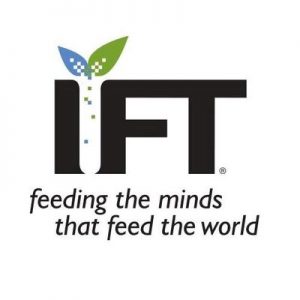 The Institute of Food Technologists and Seeding The Future Foundation have announced the Seed Grant winners and finalists for Growth Grants and Grand Prizes of the Seeding The Future Global Food System Challenge. Out of more than 600 application submissions from 75 countries, eight organizations were selected to receive Seed Grants and 11 finalists were identified for Growth Grants and Seeding The Future Grand Prizes.
The Institute of Food Technologists and Seeding The Future Foundation have announced the Seed Grant winners and finalists for Growth Grants and Grand Prizes of the Seeding The Future Global Food System Challenge. Out of more than 600 application submissions from 75 countries, eight organizations were selected to receive Seed Grants and 11 finalists were identified for Growth Grants and Seeding The Future Grand Prizes.
The Global Food System Challenge is an initiative created and funded by the Seeding The Future Foundation to inspire and support innovative, diverse, and multidisciplinary teams to develop game-changing innovations that will help transform the food system by making healthier diets more accessible and empowering consumers to make choices benefitting both personal and planetary health. To qualify, innovations must be highly impactful and benefit the following intersecting domains: safe and nutritious food for a healthy diet; environmentally responsible practices; and consumer trust, accessibility, appeal, and affordability.
To incentivize innovations at varying stages in their development, the Challenge offers three different levels of awards. The $25,000 Seed Grants are awarded to teams or organizations that are planting and nurturing high-potential innovative ideas and have developed a prototype and/or initial proof of the concept demonstrating feasibility. The $100,000 Growth Grants are awarded to organizations that have demonstrated their innovation is doable and have projected both economic feasibility at scale and high-impact potential to transform the food system. And the $250,000 Seeding The Future Grand Prizes are awarded to organizations that have created innovations that are scalable, economically feasible at scale, trusted and compelling to consumers, and have demonstrated major impact potential to transform the food system affecting the lives of millions of people.
“Amid climate change, rising malnutrition, chronic hunger, and supply chain shortages, the Challenge was created to unlock science and technology-based innovations that have the potential to overcome current obstacles and drastically improve our global food system,” said Bernhard van Lengerich, founder of the Seeding The Future Foundation. “The vast variety and high quality of forward-thinking solutions submitted this year in all award categories have been amazing. In its second year of the Challenge, we’re very excited to see momentum grow and to have the opportunity to help accelerate impactful initiatives from multidisciplinary teams from around the world.”
Innovations for the Seed Grant winners and finalists for the Growth Grant and Seeding The Future Grand Prize ranged from food waste mitigation to novel food distribution projects to plant breeding and behavior science approaches leading to healthier eating patterns.
The Seed Grant winners are:
- Chandra Associates, “CAFRESH-Connecting the Food Supply Chain”
- Kly, “Upcycling Food Waste Through Fermentation”
- Welthungerhilfe, “Mobile Vertical Gardens for Refugees and Internally Displaced People”
- MAVUNOLAB, “Preventing Postharvest Fish Losses through Low-cost and Mobile Solar-Drying Technologies in Tanzania”
- Radices Bio, “Commercialization of a Novel Microbiome-based Synbiotic Food Ingredient to Support Heart Health in Aging and Minority Populations”
- University of Dar es Salaam, “Micronutrient Profile and Household Use of Indigenous Crops in Tanzania”
- Yayasan Kopernik, “Farmer’s Livelihood Support”
- QuantumHeights GmbH, “Innovative Contributions for Process Improvement of the National School Feeding Programme in Mozambique”
The Growth Grant finalists are:
Central Luzon State University for its work to improve Philippine smallholder goat farmers’ enterprise through commercialization of innovative, healthy, convenient, and halal-certified chevon-based products.
This project aims to strengthen the whole goat value chain by empowering smallholder goat producers and processors with four innovative chevon-based products developed by Central Luzon State University that give consumers, especially those in halal markets in the Philippines and throughout the world, wider options and access to nutritious, safe, convenient and delicious food.
INMED Partnerships for Children for its Aquaponics Social Enterprise program which accelerates the deployment of a simplified, adaptable form of aquaponics, combining soilless crop production and fish farming in a closed symbiotic system, to increase global food production in the face of climate change and transition historically marginalized populations from subsistence to sustainable livelihoods.
International Rice Research Institute for their high zinc rice breeding project. High zinc rice is the cheapest, regenerative, resilient, and sustainable food-based solution to address Zn malnutrition in Nepal. This seed-based innovation helps transform the food system by providing safe, affordable, and nutritious rice to all farmers and consumers equitably.
Nurture Posterity International for their NutriPosh project for improved school diet in Uganda. NutriPosh is a composite flour that is nutritious, safe and affordable, and is appealing to students and trusted by school directors, teachers and school cooks. In addition to providing enhanced nutrition, NutriPosh processing protects the environment against the detrimental impacts of climate change and environmental degradation via the utilization of regenerative agricultural practices, solar powered dehydration technologies and biodegradable packaging.
Smart Villages Research Group for their Smart Agri-Centres, a community-led solar powered cold storage program that uses energy as a catalyst for rural development. Smart Villages focuses on using energy to enable access to improved agricultural techniques and practices, which in turn can improve quality of life in multiple ways.
World Wildlife Fund for its Farmers Post Program, which leverages the US Postal Service (USPS) as a significant yet underutilized asset to help bring fresh produce from farms to front doors across the United States. Farmers Post has the potential to transform how we get food from farms to consumers, benefitting farmers, consumers, the environment, and the USPS.
The Seeding The Future Grand Prize finalists are:
Acceso for its work to eliminate Aflatoxin from smallholder supply chains. Acceso is working to eradicate dangerous aflatoxins in smallholder supply chains, starting with peanuts in Haiti. This system utilizes an innovative combination of economic incentives, rigorous testing, and strategic logistics which prevents aflatoxin contamination at the farmer, buyer, and consumer levels.
Food Systems for the Future Institute for their work in commercializing black soldier fly larvae (BSFL) as chicken feed to enhance egg nutrition and lower the cost of eggs in Rwanda. FSF Institute is working with the Rwanda Ministry of Agriculture and technical partner Protix Ltd. to develop Africa’s first fully automated black soldier fly larvae production facility. This innovative facility will sustainably and cost-effectively scale poultry production and make it easier and more affordable for consumers to access nutritious, protein-rich eggs.
HarvestPlus for its Growing Stronger Growing Smarter project which introduces biofortified foods in school meals. Nutrient enriched crops, delivered through biofortification, will be integrated into children’s school meals in Zambia. Transforming school food systems will enhance child learning and growth and reduce morbidity.
ProVeg UK for their School Plates Project which is unique in bringing nutrition and sustainability expertise together with behavioral insights to make school meals healthier and more sustainable by using fewer animal products. With ProVeg’s help, schools are changing the positioning and language of millions of meals on menus to nudge children to eat more plant-based foods and take a personal and more active role in addressing the climate crisis at school, at home, and for the rest of their lives.
Save the Children, India for their work addressing malnutrition through the improved food system and consumer behavior. Access to optimal nutrition depends on a host of multi-sectoral issues deeply influenced by economic, social and political factors. The innovative idea has taken that into account and influences each of these factors incorporating multi-disciplinary approaches such as public health, nutrition, food and agriculture, food policy, economics and behavioral sciences.
“The Global Food System Challenge is quickly becoming one of IFT’s most anticipated events of the year,” said Christie Tarantino-Dean, chief executive officer at IFT. “We’re thrilled to have the opportunity to collaborate with Seeding The Future Foundation, an organization that shares our values and is aligned with our vision. Thank you to everyone who’s participated, and congratulations to our Seed Grant winners and Growth Grant and Seeding The Future Grand Prize finalists.”
Winners of the Growth Grants and Seeding The Future Grand Prizes awards will be announced in December.
More information on the Global Food System Challenge can be found at ift.org/food-system-challenge.
For updates on issues of interest in the specialty food industry, subscribe to Gourmet News.








